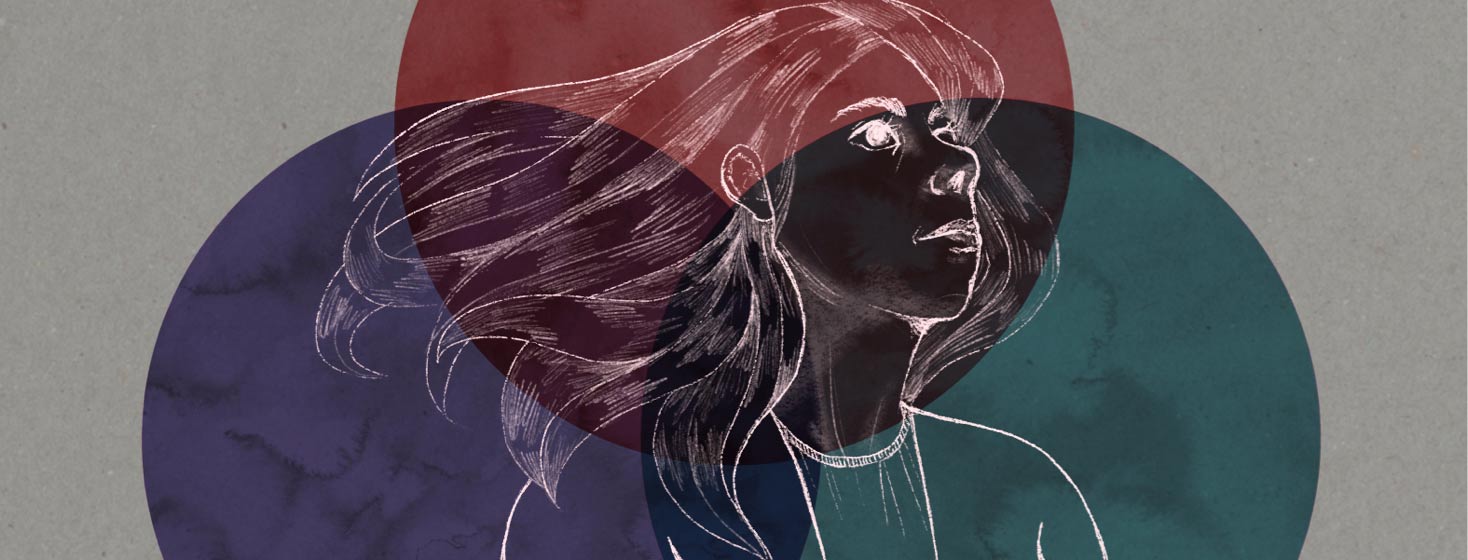Grieving Comorbidities With IBD
It seems that every time I go to a doctor or new specialist, I end up walking out with a handful of things - but mostly, acronyms. New diagnoses. Almost every time.
When you’ve been sick since you were a kid, it kind of becomes a normal thing (at least it has for me) to seemingly keep collecting different letters of the alphabet.
By the time I was 25, I felt like I had so many medical acronyms, I was a limping alphabet.
That’s hard to accept, as a young kid - or even as an adult as the plot continues to thicken.
More and more diagnoses
Like, IBD wasn’t hard enough of a diagnosis I had to be diagnosed and have surgery on my diagnosis of endometriosis either? Or that my allergies and asthma weren’t so debilitating as a kid (they were) the I need more struggles in my life, so then came autoimmune arthritis. Then came hemiplegic migraine. Then came gastroparesis. Then came PTSD.
I grieve a lot.
I understand, through therapy, that it is a good thing to grieve - what I may have been, what may have happened had I never survived sepsis and pancreatitis before I had received my IBD diagnosis. “What I May Have Been” comes up a lot for me, especially on really hard days; days when acceptance of a life of illness is harder than you could even imagine.
Grateful for my GI team
I know I have it good. I am privileged to have a great GI team. It was this GI team that taught me what teamwork was and is. It taught me how to communicate properly to your doctor and it’s given me plenty of time to become closer to the people that make sure I make it through this journey.
Even when I was at my worst and needed to seek inpatient treatment for my PTSD, they were the ones who gathered 1 by 1 in a room and told me how much they meant to me and that I needed help and that would be my defining moment. It still is one to this day. I’ll never forget the kindness my GI care team has given me, as a mentally ill patient. So yes, in this area of my life, I am privileged.
Dealing with multiple comorbidities
Now about the rest of my diagnoses (that add up to about 15-20). They aren’t all severe. They aren’t all active at the same time, but they sure make each other worse when one flares. When I get my period, I have 3 weeks of absolute painstaking horror, which makes my Crohn’s so much worse than it has to be.
I grieve that. I go through the cycle of and stages of grief every time I have my period because it’s another reminder I’m not in remission and things will get real awful very quickly when I have my cycle, even with proper birth control.
Others will never understand what I go through
I get mad every time gastroparesis mixes with my IBD, which in the last two years, has been quite often. The only time I’m jealous of others is when I have a mix in all of my syndromes, flares, diseases are of others who will never understand why it’s so hard for others to sustain a full-time job.
I grieve the full-time jobs I used to have, despite the pain while working at each place.
But each of those places has made me who I am and have also helped me allow myself to grieve who I once was, who I could have been, and all the in-betweens.
The anger, the bargaining, the depression, the denial, and finally, acceptance.
Grieving what could have been
I learn to accept all the time, but that doesn’t mean that I won’t grieve, be angry, and upset over something that will continue to repeat itself time after time. It’s not easy.
I’ve had a full 16 years to realize when I need to grieve, and how that needs to be done - all of course with the help of my therapist.
It’s okay to grieve. It’s okay to let your mind wander off where you may be IF you hadn’t gotten diagnosed. But make sure to do some type of closure for yourself after you’re thinking like this.
Remind yourself you are capable (even when you don’t feel it). Remind yourself that you are strong (no one can understand the pain you’re in unless they have it too). And always remember to forgive yourself, be easy on yourself, and remember it’s okay to have feelings. More diagnoses don’t mean your feelings are taken away.
You’re more resilient than you know.

Join the conversation